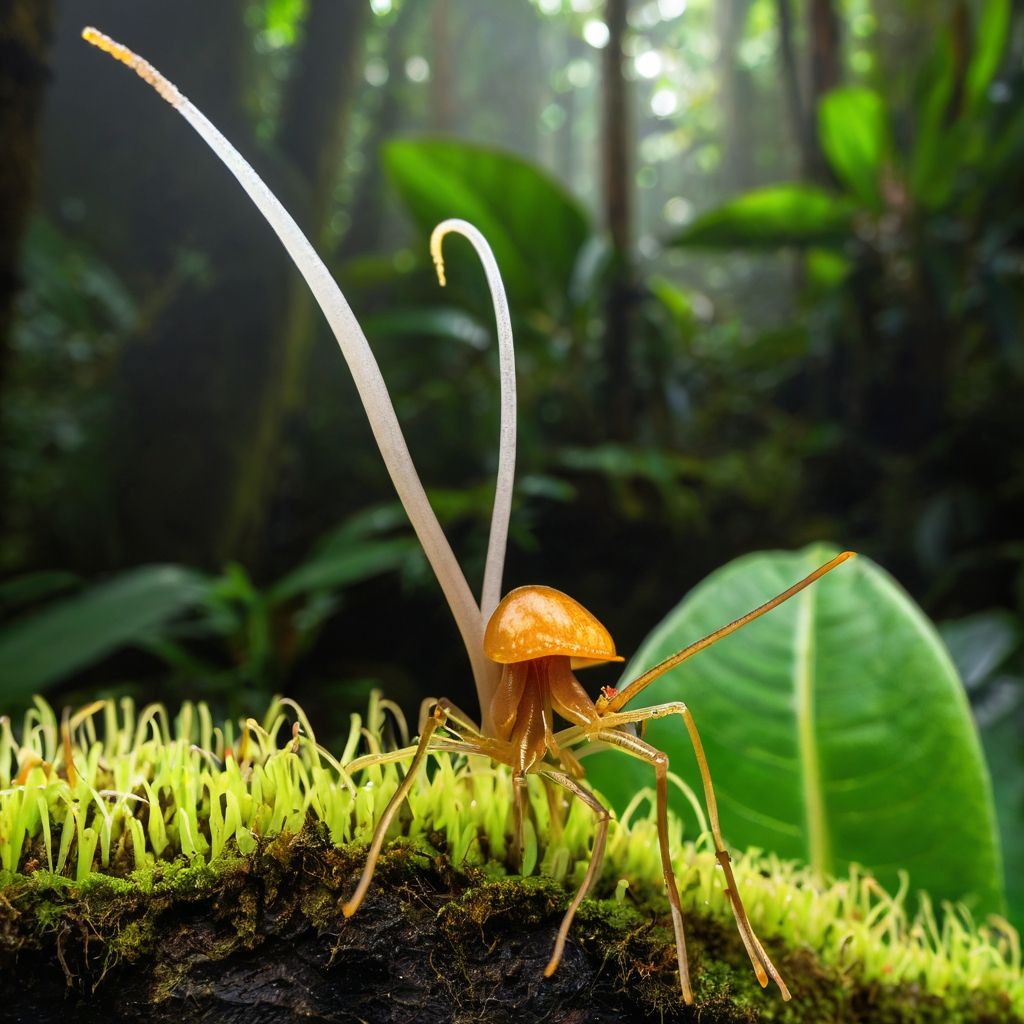
“`html
Have you ever heard of fungal mind control? It sounds like something out of a science fiction movie, but it’s a chilling reality in the natural world. Certain fungi possess the extraordinary ability to manipulate the behavior of their insect hosts, turning them into unwitting puppets in a gruesome, yet fascinating, biological drama. This terrifying display of parasitic power highlights the complex and often unsettling interactions within the ecosystem.
The Zombie Ants and the Power of *Ophiocordyceps unilateralis*
One of the most striking examples of fungal mind control is the relationship between the fungus Ophiocordyceps unilateralis and its ant hosts. This parasitic fungus infects carpenter ants, subtly altering their behavior in a way that benefits the fungus’s reproductive cycle. The fungus doesn’t simply kill its host; it meticulously orchestrates its demise.
Once infected, the ant begins to exhibit unusual behavior. It abandons its colony and its normal routine. Instead, it’s driven by an unseen force, a fungal puppeteer pulling the strings of its nervous system.
The ant, now a zombie-like creature, follows a precise, predetermined path. It climbs to a specific height on a plant, usually around 25 centimeters above the forest floor, and then clamps down with its mandibles onto a leaf vein, securing its death grip. This behavior is crucial for the fungus’s survival.
Unraveling the Secrets of Fungal Mind Control
The precise mechanism behind this fungal mind control remains a subject of ongoing research. Scientists believe the fungus produces various bioactive compounds that interfere with the ant’s neurochemistry. These compounds could potentially target specific neurotransmitters, disrupting the ant’s decision-making processes and motor control. The fungus essentially hijacks the ant’s brain.
This strategic positioning of the ant is no accident. The height and leaf-grasping behavior ensure optimal conditions for the fungus to release its spores. Once the ant dies, the fungus erupts from its head, releasing a shower of spores to infect more unsuspecting ants, perpetuating the cycle of fungal mind control.
This chilling example of parasitic manipulation isn’t unique to Ophiocordyceps unilateralis. Other fungal species exhibit similar control over their insect hosts, showcasing the remarkable evolutionary adaptations found in the fungal kingdom. The study of these phenomena provides fascinating insights into the complex interactions between parasites and their hosts.
Further research into the biochemical mechanisms involved in fungal mind control could potentially lead to advancements in fields like medicine and pest control. Understanding how these fungi manipulate their hosts could offer valuable insights into neurobiology and potentially lead to the development of novel drugs or biocontrol agents.
Want to learn more about the amazing world of science? Check out our other articles on daily science facts!
To delve deeper into the fascinating world of Ophiocordyceps unilateralis, you can explore further information on Wikipedia: Ophiocordyceps unilateralis.
“`